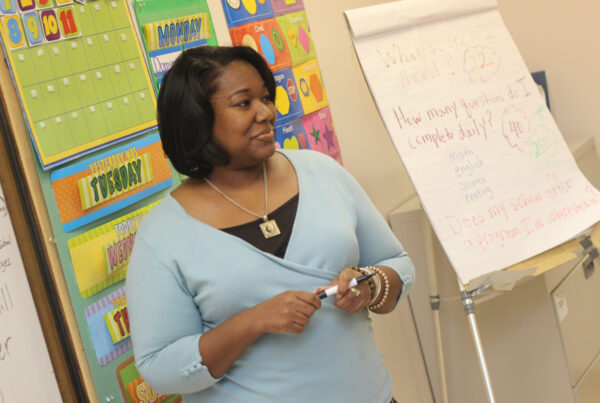Now That Families Are Driving, A Few Considerations to Ponder
Many years ago, a superintendent said to me “As soon as we get through testing, we’ll get to that family engagement stuff.” While these types of statements don’t happen very often, they’ve happened just enough to, at times, give me pause about the entire notion of engaging families. I wondered whether or not family engagement would ever be as important as everything else or if it would ever break through and become a top priority for every school and district. I wondered if this topic, one that I have devoted 25 years to learning, researching and writing about, resonated with enough educators such that a tipping point could occur with regard to engaging families in the academic lives of children. These ideas don’t stop me or slow me down, but I do think about them.
And then COVID-19 showed up and family engagement took center stage.
I’ve talked with enough teacher and leader friends to know that these last few weeks have been unprecedented, stressful, confusing, exhausting and at times pretty exciting. Education, the slowest behemoth in the world to change, is literally, turning on a dime. Born out of a necessity to provide some continuum of education and basic human connection for millions of students, leaders, teachers, specialists and counselors are working around the clock to figure out how to best serve students. My hat is off to each and every one of you.
I have been thinking about some considerations that we might think about now that families are driving learning experiences and outcomes. The ideas are in no particular order other than how I wrote them out.
- Acknowledge the Contextual Changes in Learning: How we designed and delivered lessons prior to COVID-19 bears little resemblance to how lessons should now be constructed for home consumption. The content is the same, but the context of education is completely different.
- Re-imagine the Pace of Learning: Learning, most likely, is not going to move along at its normal pace. Slow down. Maybe there are not five lessons a week. Maybe everything looks different now. Backwards design has never been more important. So much has happened in the first two weeks, I fear our teachers and leaders will burn out by week three and this is only the beginning.
- Account for the Emotional Strain of Learning at home: Teachers and children in many cases are traumatized by the upending of normal school routines. Families who have traditionally played a tangential role in learning, are now thrust center stage. In the opening weeks of this marathon, focus on building relationships, helping families and students by listening and acknowledging fears.
- Give Families an Active Role in Learning: The traditional roles for families in learning have been usually relegated to two roles: 1) Recipients of information. (we inform them of things). 2) Compliance officers. We tend to provide information for which families need to take action or comply with directions (sign the agenda book, review the report, etc.) Neither of these roles hold much meaning in our present situation. Instead, engage families in the actual learning that is taking place, not a role of supervisor of learning.
- Consider Your Role Shifting from Teacher to Learning Coach: We have to form a partnership with families to continue the process of learning. Engage them in lesson development ideas. Get their reactions to potential assignments that you are thinking about. Ask for their help and guidance and in turn give them suggestions, questions, look for’s and ask for their feedback. Listen. You will be amazed at the support you receive and the dividends the partnership can pay.
- The Landscape Is Already Changed: When the COVID-19 crisis is over, and it will be over, I don’t think we can (or should) go “back to normal.” New levels of ingenuity and innovation have been proven. Expectations about how learning can look are now vastly different. We will learn, I think, that we can do more with less, be productive and not subscribe to traditional norms in learning. Most importantly, this dilemma we face have brought us back to our authentic roots. Maybe we should consider staying there for a while.
Get notified!
Sign up for Dr. Constantino's newsletter.
Receive updates when new content is posted to the website. Be the first to learn about upcoming online classes.




Good Morning and THANK YOU! Especially for that first paragraph!! I so much needed to hear that is not only me who wonders about the role of FE in the school districts: “I wondered whether or not family engagement would ever be as important as everything else or if it would ever break through and become a top priority for every school and district.”…
I wondered the same and, I am not going to lie, it has slowed me down a bit, especially recently… But, finding spaces and resources like yours feed me, my FE practice, and keeps me motivated to keep going!!
Maria,
Thank you for your comment. I am glad I can continue to provide you some motivation. We need you now more than ever. You can be the torch bearer for family engagement in your district! If ever I can assist, do not hesitate to reach out!